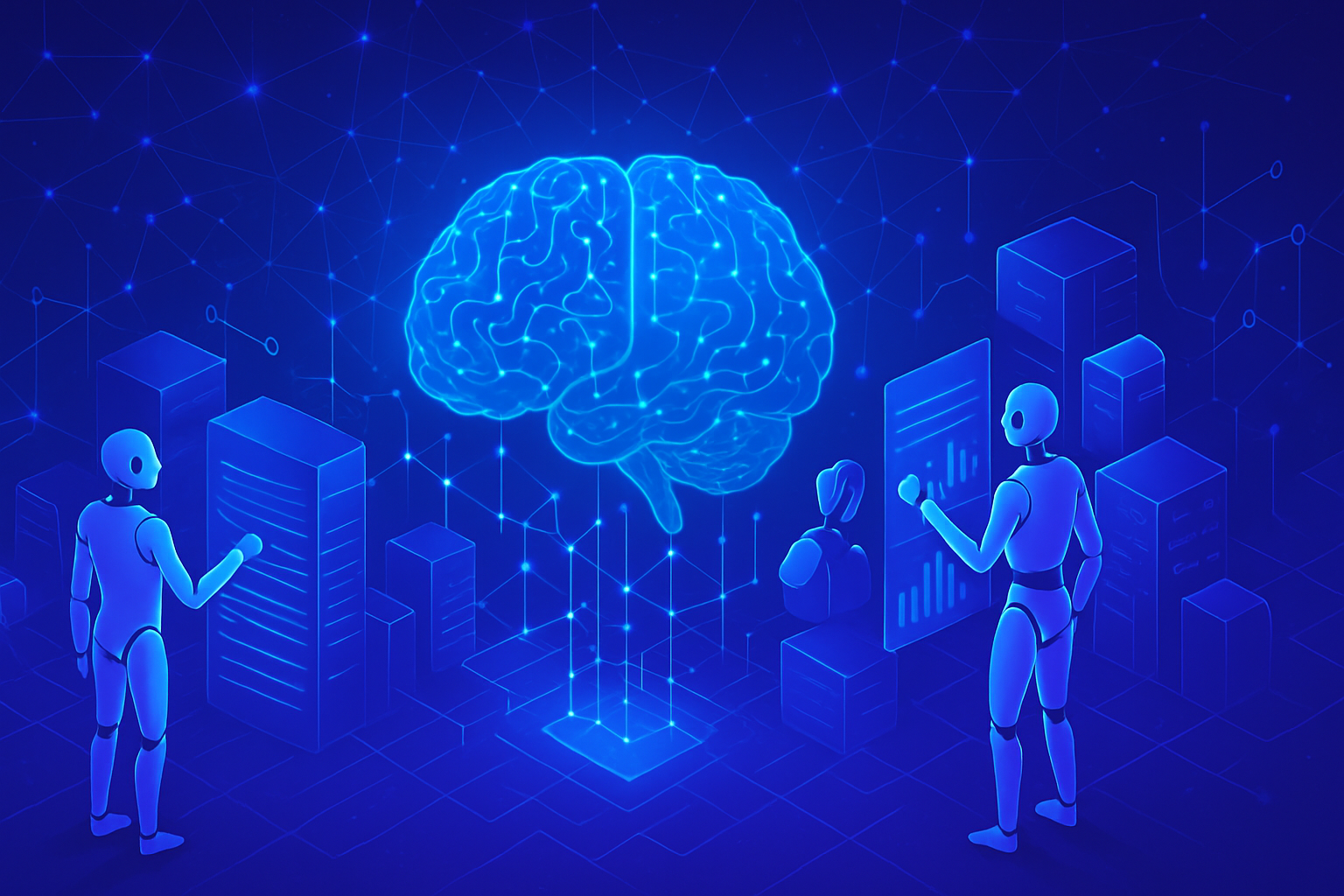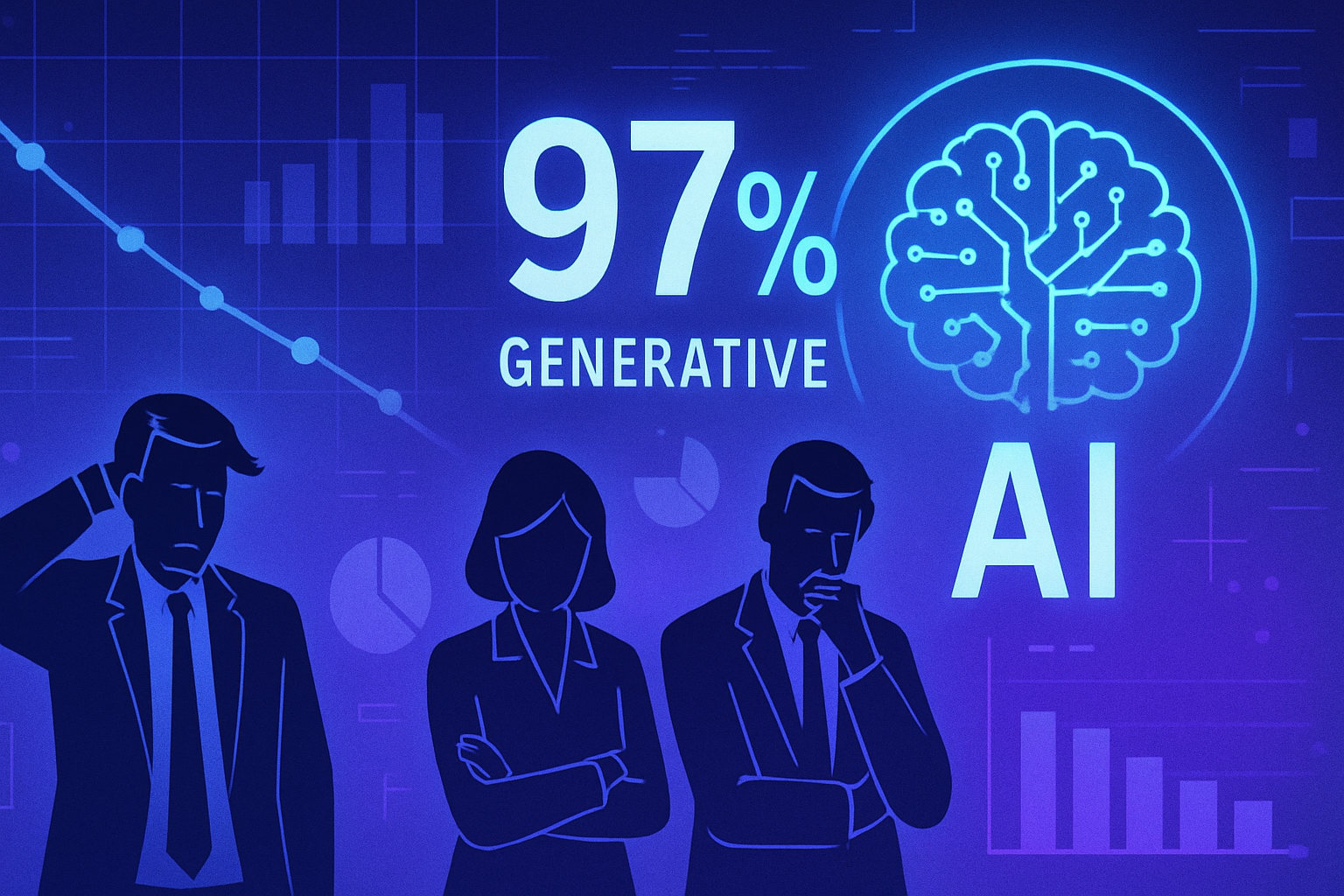The agentification redefines the paradigms of interaction between businesses and data. This evolution transcends traditional automation, introducing systems capable of adaptation and reasoning. Facing the requirements of the regulatory framework, particularly the AI Act, organizations must rethink their data strategy. Intelligent agent systems do not merely act according to rigid rules. They learn, anticipate, and evolve. Understanding these challenges is vital to ensure compliance and maximize performance.
Agentification versus Automation
Agentification replaces traditional automation with intelligent and autonomous systems, thus altering the approach to data management in businesses.
Five years ago, the term “agentification” was unheard of. Today, it redefines interactions with data driven by generative AI and intelligent agents. Unlike automation, which relies on strict rules, agentification interprets, adapts, and continuously learns.
Nature of Automation
Automation is characterized by its rigidity. It excels at executing predefined tasks, such as ETL scripts or no-code workflows. These tools are effective, but their capabilities are limited to well-defined processes. The data they process is structured, predictable, and merely constitutes a simple input into an established system.
Evolution towards Agentification
In contrast to automation, agentification treats data as a living flow. Intelligent agents analyze context, cross sources, and make informed decisions. A financial co-pilot can identify anomalies, suggest optimizations, and justify its reasoning to users.
The philosophy underlying this evolution is distinctly different. While automation focuses on accelerating processes, agentification questions the future actions to undertake.
Regulatory Impacts
With the implementation of regulatory frameworks like the AI Act from the European Union, many agent-based systems are considered high-risk, especially in critical sectors such as finance and health. These systems will require rigorous assessments, measures of transparency, and increased human oversight.
Businesses must ensure that human judgment plays a role in key decisions. This requirement adds significant complexity to data governance, necessitating accurate documentation of decisions and processes taken.
Governance and Trust
Data governance now relies on trust and traceability. When an AI agent recommends a strategic action, it is crucial to question the accuracy of that decision. Organizations must reevaluate their documentation methods according to regulatory framework specifications, incorporating elements like the logic of the models used and the data sources exploited.
Data Systems Architecture
Architectures are evolving, replacing rigid pipelines with event-driven systems and open APIs. This transformation enables dynamic exchanges between intelligent agents and human users.
In this context, compliance will not just be an outcome but integrated from the design of high-risk AI systems, requiring robust and appropriate protection measures.
Human Factor and Skills Transformation
The transition to agentification also changes the role of data professionals. Advanced skills become necessary, particularly the ability to interact critically with AI.
The emphasis placed by the AI Act on human oversight leads to the need to train employees in assessing AI outcomes. Data experts are not just operators; they must become mediators between raw information and actionable knowledge.
A New Paradigm for Data Strategy
Data strategies must evolve to incorporate this new reality. Success lies in the intelligent activation of data, in line with constantly changing regulations.
This new framework forces organizations to view their data infrastructure as a living system, flexible enough to evolve and respond to regulatory requirements while building on the solid foundations of traditional automation.
Common FAQ
What is agentification and how does it differ from traditional automation?
Agentification refers to the use of intelligent agents capable of interpreting, learning, and adapting, unlike traditional automation which follows predefined rules to execute tasks. It allows for a more dynamic and evolving management of data.
How does agentification impact data governance in businesses?
Agentification modifies data governance by emphasizing trust and traceability. With AI agents, it is crucial to understand how decisions were made, as it is no longer sufficient to record outcomes, but also to document decision-making processes.
What are the risks associated with using intelligent agents in AI systems?
AI systems driven by agents may be classified as high risk, requiring rigorous assessments and strict compliance with regulations, including the AI Act. This involves human oversight of critical decisions to ensure safety and ethics.
What skills are necessary to work effectively with agentification systems?
Working with agentification systems requires skills in critical assessment of outcomes, collaboration with AI, and prompt crafting. This necessitates a shift from operator roles to that of mediators between data and actionable insights.
What are the implications of the AI Act for companies adopting agentification?
The AI Act imposes obligations for transparency and documentation for high-risk AI systems, prompting companies to review their data strategy to integrate these requirements from the design of their AI architecture.
How can companies ensure that the use of agentification complies with existing regulations?
To comply with regulations, businesses must create agentification systems that integrate protective measures, such as security and real-time monitoring mechanisms, and ensure effective human oversight of critical decisions.
How is system design evolving with agentification?
With agentification, system design is evolving towards more flexible architectures like event-driven systems and open APIs, allowing efficient orchestration of interactions between AI agents, generative models, and human users.
How can companies evaluate data quality in the context of agentification?
Evaluating data quality must consider not only accuracy but also semantic richness and context. Intelligent agents require rich contextual data to make informed decisions.
What benefits can companies derive from implementing agentification in their data strategy?
Implementing agentification allows for better responsiveness to changes, more informed decision-making, and increased operational efficiency, while fostering innovation through systems capable of evolving and adapting in real time.






